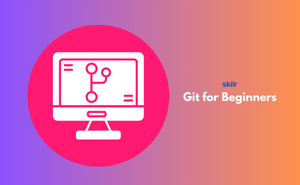👇 CELEBRATE CLOUD SECURITY DAY 👇
00
HOURS
00
MINUTES
00
SECONDS

Git is a tool that helps organize and track all changes made to files, particularly in programming projects. It enables multiple team members to work together on the same project safely, without losing previous versions. You can think of it as a “time machine” for your files, letting you review, compare, or revert changes whenever needed.
This certification introduces beginners to Git’s core functionality, including creating repositories, monitoring updates, managing branches, and combining changes efficiently. By completing it, learners gain the skills to collaborate smoothly on projects, making it ideal for software developers, IT professionals, and digital content teams.
This exam is ideal for:
Domain 1 - Introduction to Git
Domain 2 - Installing Git
Domain 3 - Git Basics
Domain 4 - Branching in Git
Domain 5 - Working with Remote Repositories
Domain 6 - Tracking Changes
Domain 7 - Collaboration
Domain 8 - Best Practices
Domain 9 - Git Tips and Tricks
Industry-endorsed certificates to strengthen your career profile.
Start learning immediately with digital materials, no delays.
Practice until you’re fully confident, at no additional charge.
Study anytime, anywhere, on laptop, tablet, or smartphone.
Courses and practice exams developed by qualified professionals.
Support available round the clock whenever you need help.
Easy-to-follow content with practice exams and assessments.
Join a global community of professionals advancing their skills.
No, this certification is designed for beginners.
Yes, collaboration with GitHub is covered.
Yes, cloning, pushing, pulling, and collaboration are covered.
Basic programming understanding is helpful but not mandatory.
Absolutely, Git skills improve team collaboration and workflow.
Yes, basic command-line usage is required.
Yes, both concepts and practical applications are included.
Yes, Git allows safe tracking and reverting of project versions.
Yes, Git is widely used with cloud repositories and DevOps.
Yes, handling merge conflicts is part of the training.
Definitely, it covers fundamentals with hands-on practice.
Yes, commit messages, branch organization, and workflows are discussed.
Software developer, web developer, DevOps engineer, version control specialist.
Yes, Git is essential for managing projects and collaborating remotely.
Beginners in software development, web developers, IT professionals, and students.